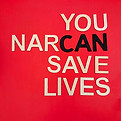
About Me
My name is Melissa Flanagan, and I've been a licensed clinical social worker in New York City for almost 20 years.
After working in community-based mental health settings since I started my career, I opened my private psychotherapy practice, The Community Couch, in 2022, and I made a commitment to do things differently. I wanted to offer in-person sessions, accept insurance, set below-market rates, and offer a few pro bono spots for people who couldn't otherwise access therapy. To bring a little more approachability and warmth into the therapy space, I bought a funky, purple velvet couch for my office and named my practice after my mission to make private therapy accessible to more people than just the lucky few who can pay out-of-pocket.
Now a few years in, my practice continues to evolve for the benefit of my clients and stays aligned with my core values. To protect your privacy and your data I do not use Artificial Intelligence (AI) anywhere in my practice, and I have stepped away from those big therapy platforms that are funded by profit-first venture capitalists (VCs). I try to keep big business out of my small business as much as I can.


Clinical background & approach to therapy
I earned my undergraduate degree from the University of Illinois at Urbana-Champaign and my master's degree in social work from New York University, with a specialization in evidence-based practices. Prior to opening my private practice, I worked in New York City public mental health settings including Bellevue and Kings County Hospitals, where I held clinical and leadership roles in adult psychiatry. I later became the director of a mental health shelter for older women experiencing homelessness and co-morbid medical conditions including diabetes, cardiovascular disease, and other serious chronic illnesses.
My approach to psychotherapy and developing treatment goals is always through a biopsychosocial lens that gives attention to race, culture, gender identity and expression, general health concerns, socioeconomics, medical wellness, and phase of life. I use a combination of clinical modalities derived from Cognitive Behavioral Therapy (CBT), psychodynamic therapy, and Dialectical Behavioral Therapy (DBT), which I learned as a clinical trainee at Bellevue Hospital's Intensive Personality Disorders Program. I believe that helping people understand the relationship between negative thoughts, self-judgment, emotional suffering, and unhelpful patterns of behavior can be transformative across a broad spectrum of mental health problems. And the scientific studies agree!
My style in session is collaborative and dynamic. I enjoy actively participating and will challenge you when appropriate. While of course it's important to ask you, "How does that make you feel?", there is so much more to the therapeutic experience than this question alone. I want to move you forward with new insight and new ways of coping and thinking that will last long after therapy ends.
I work with people 18+ who are struggling with:
-
Mood disorders like depression and bipolar disorder
-
Anxiety and panic
-
Substance use disorder
-
Psychosis
-
New mental health problems emerging in young adulthood
-
Unhealthy behaviors
-
Stressors related to managing chronic illness
-
Aging, issues connected to life stage
-
Caregiver burnout
If I find that an evaluation for medication management would be helpful in your treatment - and you are in agreement - then I will work with you to refer you to an appropriately licensed prescriber with whom I will collaborate for safe and effective continuity of care. This could be your primary care doctor, a psychiatric nurse practitioner (PNP), or a psychiatrist, depending on the mental health concern.
hOW i wORK
Training and clinical approaches are critical considerations for choosing a therapist who's the right fit.
Just make sure you understand their business practices, too.

No Artificial Intelligence
Call me as old fashioned as
orange linoleum.
I value technology, but I'm extremely cautious about how it's used in the privacy of the therapy space. Despite the growing trend of therapists using Artificial Intelligence (AI) to record sessions and translate voice into text for required documentation,
I just don't do it.
Your privacy is one of my highest priorities.

No Venture Capital-Backed Platforms
Digital platforms that help prospective clients find therapists - and help therapists run their practices - are convenient, but did you know that their investors are often big venture capitalists (VCs)...and that some of those VC investors are the same insurance companies who are often trying to deny coverage?
I call that a conflict of interest.
Profit becomes a priority, which means that the sacred space of therapy is compromised. Because I manage my own practice without venture capital-backed platforms, big business stays out of our business as much as possible.

In Person Sessions,
if you want them
Not everyone loves telehealth or understands how to manage the technology required for a telehealth session. I get it, so I offer in-person sessions for anyone who prefers them. Many clients choose a hybrid of in-person and telehealth sessions, and I give you the freedom to choose what's best for you. My office is conveniently located in the Flatiron District in Manhattan, across the street from Madison Square Park. It's close to subways and buses and nice places to grab a coffee or run a quick errand on your way to therapy.

How to pay for treatment
1 / Insurance
I am contracted to accept Medicare, Aetna, Anthem Blue Cross/Blue Shield, United Health, and Optum. Please note that even if you see your plan listed here, eligibility must be determined via a discussion with your plan before treatment begins. I can help you with that. There are some plans that offer out-of-network benefits for services, so if I don't accept your insurance, you may still have options to reduce cost.
2 / Self-pay
If I don't accept your insurance plan and you don't have out-of-network benefits, you may choose to self-pay for your sessions.
New York has some of the highest rates for therapy in the country.
To improve accessibility to care, I set my rates under the State average as follows:
15-Minute Telephone Consultation - No charge
Initial Evaluation $200
Hour-long Session $160
45-Minute Session $140 (nearly all sessions will be 45 minutes)
3 /pro bono sessions
The reality of American healthcare is that not everyone has insurance. And not everyone has enough insurance or the right kind. I set aside some sessions for people with complex clinical and biopsychosocial needs who would be unable to access therapy unless it's no-cost. Please talk to me if you feel that you need pro bono services. I cannot offer as many hours as I'd like, but I will consider every request.
Mental Health sites & Services worth sharing

American Foundation for
Suicide Prevention
Learn about suicide prevention and grief recovery from experts in the field.

The New York State Department of Finance
File a complaint related to problems with your insurance plan.
File a Complaint | Department of Financial Services

Abraham Maslow's Hierarchy of Needs Theory

Mood Disorders
Support Group
Pay what you can afford - or pay nothing at all - to join in-person and online groups about unipolar and bipolar depression.

What's Your Grief?
Find tools and community for the many facets of grief.

ProPublica
Social Justice Journalism
Follow the latest news about policies that affect healthcare services.
ProPublica — Investigative Journalism and News in the Public Interest

Fountain House
World leaders in strengths-based recovery for people managing serious and persistent mental illnesses.

DBT Self Help
Some of the best skills for living a happier life are found within Dialectical Behavioral Therapy (DBT). There is something for everyone.

Naloxone Education
Learn how to reverse an opiate overdose, and get your own free kit to save a life.




mental health publications
Flanagan, M. (2025, March 24). Let’s run away together: I’m a therapist leaving venture capital-backed mental health. Medium.
Link:
Flanagan, M. (2024). The Best Doctors Stay Awake. In The Perfect Doctor: Forty Voices on the Imperfect Pursuit of the Ideal. Essay, Yakhkind (ed.).
Link:
Flanagan, M. (2024, November 23). For people with serious mental illnesses who are experiencing homelessness, COVID-19 was, and is, just different. Medium.
Link:
Flanagan, M. (2023, November 28). Responding to: Behind Acts of Violence, Years of Mistakes. The New York Times: Letters to the Editor.
Link:
Opinion | Helping Homeless People Who Are Mentally Ill - The New York Times
For Consultations & questions
The Community Couch LCSW PLLC
1115 Broadway
10th Floor - Suite #1028
New York, NY 10010
347-244-5989
Accessibility statement

This statement was last updated on April 11, 2025.
The Community Couch LCSW PLLC is working to make our site, www.thecommunitycouch.com, accessible to people with disabilities.
What web accessibility is:
An accessible site allows visitors with disabilities to browse the site with the same or a similar level of ease and enjoyment as other visitors. This can be achieved with the capabilities of the system on which the site is operating, and through assistive technologies.
Accessibility adjustments on this site:
We have adapted this site in accordance with WCAG 2.1 guidelines and have made the site accessible to the level of AA. This site's contents have been adapted to work with assistive technologies, such as screen readers and keyboard use. As part of this effort, we have also
-
Used the Accessibility Wizard to find and fix potential accessibility issues
-
Set the language of the site
-
Set the content order of the site’s pages
-
Defined clear heading structures on all of the site’s pages
-
Added alternative text to images
-
Implemented color combinations that meet the required color contrast
Declaration of partial compliance with the standard due to third-party content:
Some sections of this website use hyperlinks to connect visitors to other websites, and in these cases, contents do not belong to the organization and instead belong to owners of those sites. We therefore declare partial compliance with the standard for these pages.
Accessibility arrangements in the organization:
The Community Couch LCSW PLLC uses physical office space that is accessible by public transportation, has an on-site elevator, and offers accessible restrooms and meeting spaces.
